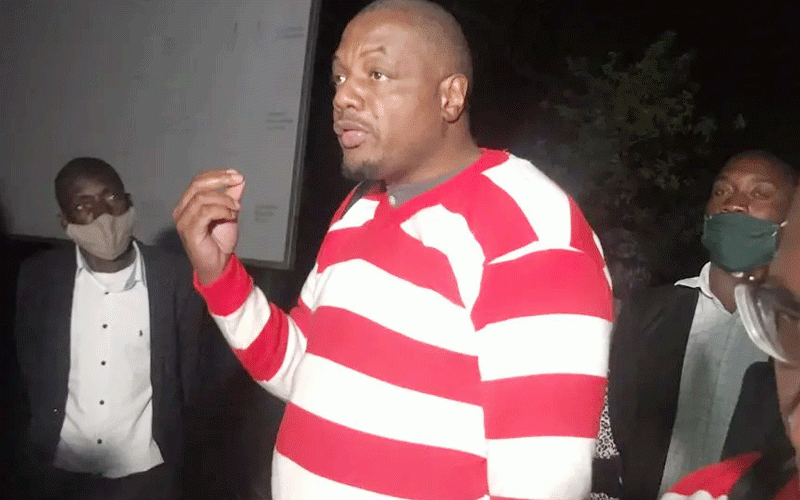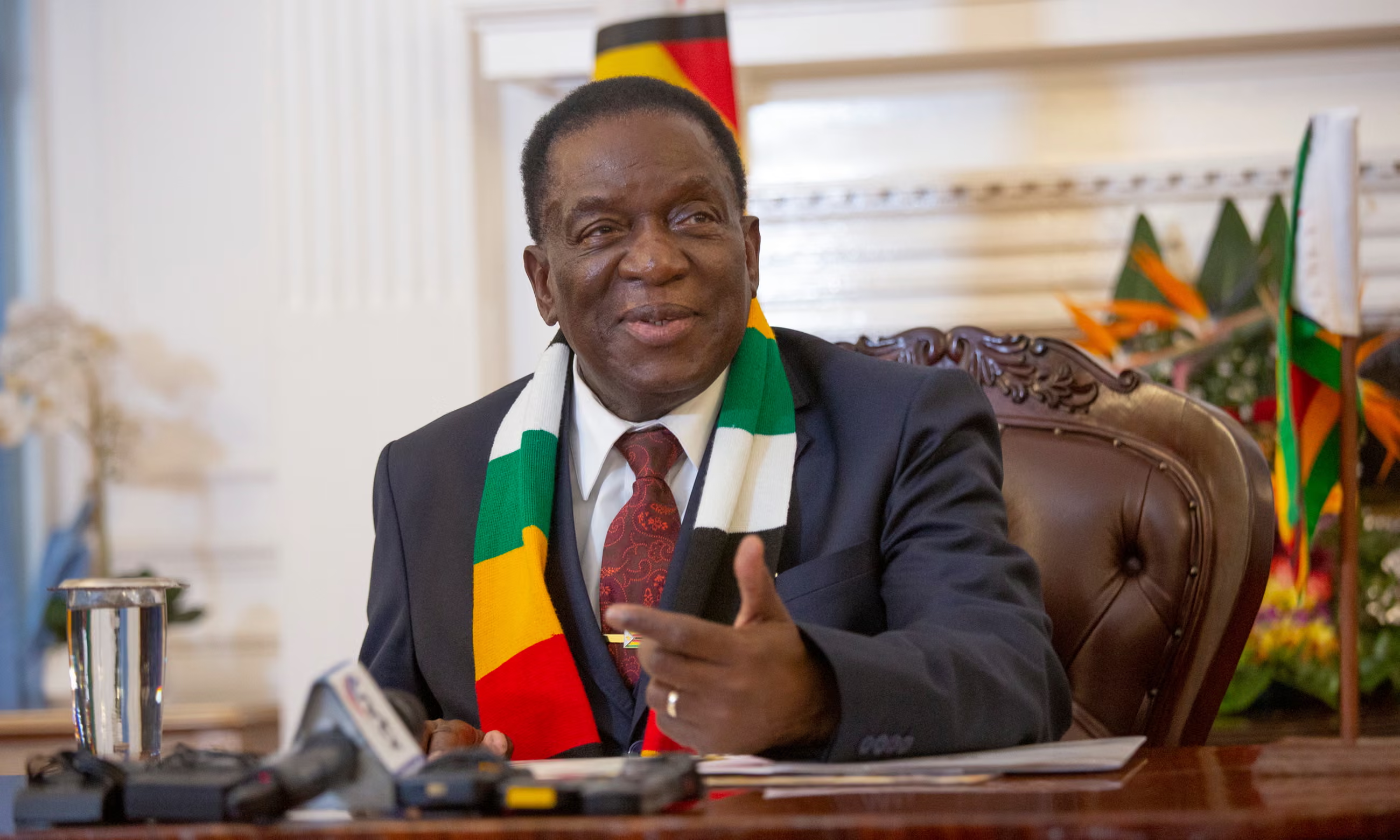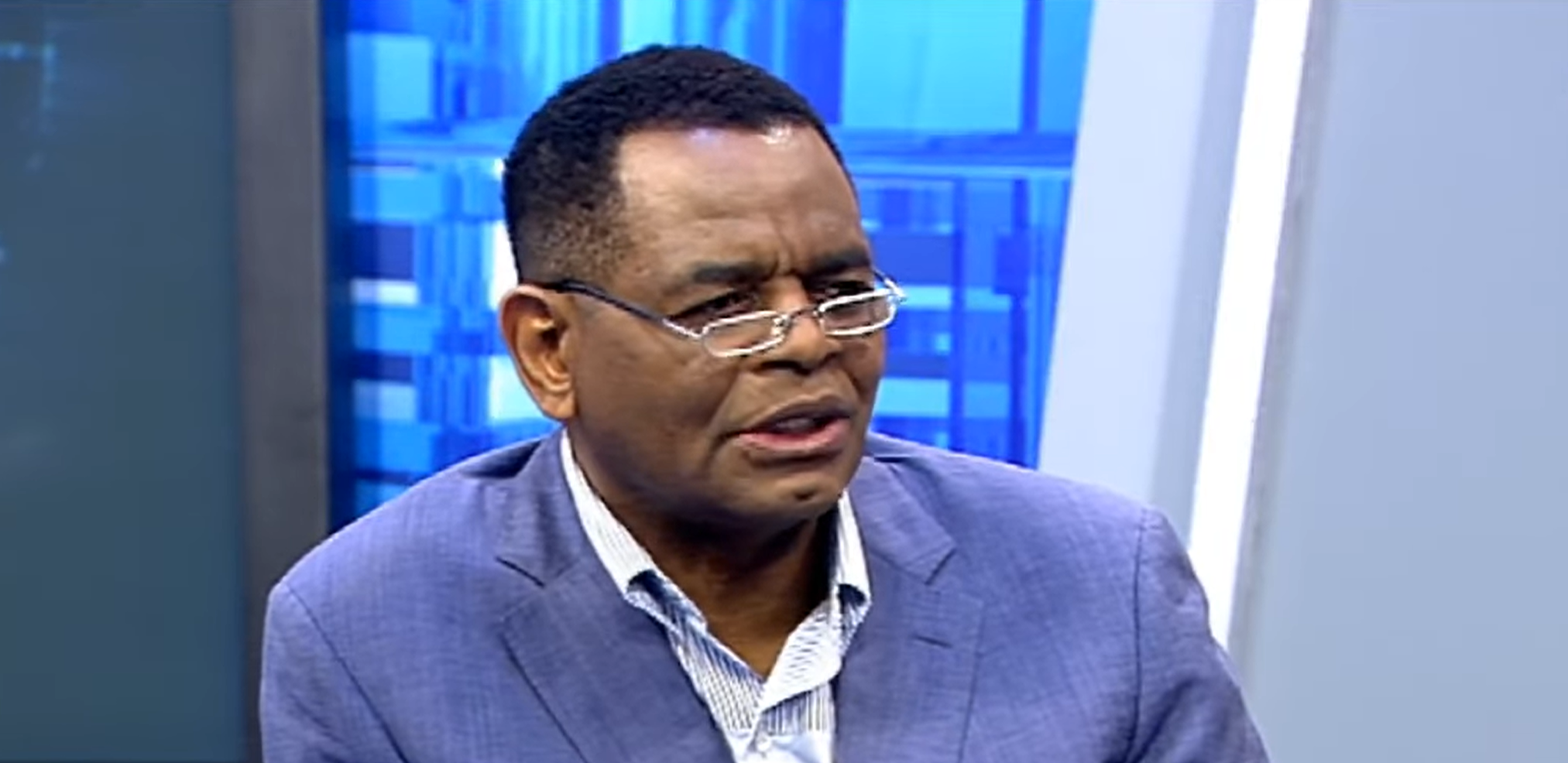
Journalist and documentary filmmaker Hopwell Chino’ono says the decline in service delivery by local authorities in Zimbabwe is linked to the poor quality of elected representatives such as councillors.
In the second part of an interview on the In Conversation with Trevor platform hosted by Alpha Media Holdings chairman Trevor Ncube (TN), Chino’ono (HC) said there were too few public office holders with the right skills to run local authorities.
He also spoke about why he was one of the people that wanted President Emmerson Mnangagwa to be given a chance after the 2017 coup that toppled long-time ruler Robert Mugabe.
TN: I think that for me the issue, and this is where my good friend, Much Masunda, always reminds me that the calibre of the people that we enact to Parliament, to the councils, should be people that have ideas to empower the citizens to do their own stuff.
It is okay for us to get help from abroad, but we are such a rich country, we could do lots of things for ourselves.
HC: I mention abroad because there is a disconnect between central government and local government. Local government is in the hands of the opposition, and unfortunately central government does anything and everything possible to make sure that local government does not work.
TN: Let me push back you on that. You have said we tend to come up with excuses why things do not work.
I hear that a lot, that central government wants to make things not happen at local government level.
- Masunda lands global sugar industry position
- In Conversation with Trevor: Chisamba: Let’s be proud of ourselves
- In Conversation with Trevor : How car crash changed my life
- In Conversation With Trevor: ‘We lost our humanity’
Keep Reading
With the opposition controlling the majority of the local authorities, if they were determined to make local authorities work for the benefit of you and I, and they went out, and they called us out and they supported us when we did things that are good for us, do you not think that local government would work?
HC: I think if we had quality...
TN: As in councillors?
HC: If we had quality councillors, we have some quality councillors, but the numbers are not enough to make a difference.
So, if we had quality councillors it would easier.
Take for example Strive Masiyiwa, or Moxon (John) of Meikles.
Now if you get someone who was your gardener and now is your councillor what kind of conversation is he going to have?
In other countries, in Kenya for example, for you to be a member of parliament you must have a degree.
You cannot go into Parliament without a degree.
We do not have that here, we had it in the past where the Rhodesians said you must own property, you must have a stake.
Now if you have somebody who is living in a cottage and is representing that community, the effects of rents and all those things do not affect him or her, so they do not understand.
TN: Does not the problem there Hopewell lie on me the elector? The voter? Why am I voting for somebody who does not have the qualifications?
You are bringing me to a point where I think it is a fundamental point that is being pushed by the opposition which is so wrong, and that is we need new leaders.
No we need new voters. I think I need voters who understand that I need to say when Hopewell comes and wants to be a candidate they say Hopewell let me see your CV so that you represent me.
So we need a reformation of us as individuals, so that we hold to account the people that represent us. What is your push back on that Hopewell?
HC: Actually there is no pushback for that one.
I think you are correct and I think that is what Nelson Chamisa is trying to do now, by saying that we are not going to have primaries.
The communities must give us candidates. What he is trying to say and what he is doing by saying that is to say if Trevor you give me Hopewell you must understand that you are going to live with Hopewell for the next five years.
If you give me a bad candidate, it becomes your bad candidate.
In the past political parties would have primary elections and only people within the party would be elected, but this new system that Nelson Chamisa has put on the table now is to say, you do not even need to belong to the political party for you to be a representative, you are selected or enacted by your community first then you go to become a candidate for CCC.
So it is important for that. But coming back to the issue you have mentioned, the main question for me is why are we failing to attract people of great minds?
Why are we failing to attract great minds into politics?
It is because our politics has been about violence, insults, it has never been about ideas.
There are a few politicians on both sides of the aisle who will come up with ideas. In most of the cases it is about loyalty.
If I say today Emmerson Mnangagwa has gotten things wrong, I will be lampooned on social media by Emmerson Mnanagagwa’s supporters.
If I say Nelson Chamisa has gotten things wrong I will be lampooned by Nelson Chamisa’s supporters, and the danger of that is you create a culture of popular politicians who are untouchable.
So for instance, Zanu PF has just had a congress, and President Mnanagagwa is untouchable, but when you look at his track record from 2017 to now, and ask yourself that if our politics was about ideas, substance and issues would President Mnanagagwa be the candidate for Zanu PF today?
Would they be putting him forward again for election?
The hospitals do not have medication, the roads are potholed, homes do not have drinking water, 95% of our potential workforce is out of work.
TN: Hopewell the other issue that you have been outspoken about, and which is very important is the issue of our sanctions.
Now I will tell you what my take is and I am interested in your pushback.
I strongly believe sanctions are wrong, but I also believe that the things that we are being asked to remove, to get rid of are things that are not good for us.
We do not need anybody to tell us that we need to conduct elections that are free and fair, or to not take people's land, to not kill people and so forth.
So why not go ahead and do that?
So I believe sanctions should go, but we have the responsibility to remove the things that cause sanctions, and we are not going to lose anything.
I also believe that corruption is damaging the economy, but I find that in Zimbabwe you cannot argue that corruption and sanctions are wrong, it is going to be one or the other.
What is your view on that? Sanctions are wrong. Corruption is wrong. Can we just agree on that?
HC: I agree with you, and I have written about it extensively, responding to academics who have put different views, and unfortunately for a long time the messaging was not right from the opposition in Zimbabwe, but now Nelson Chamisa has come out and said that sanctions must go.
I think that there is no sane Zimbabwean who does not think like that, that sanctions must go.
The issue that we always struggle with is that Zanu PF does things that make it difficult for sanctions to go.
Sanctions are an external imposition by an external party, the United States of America. We have no control about what they do in their legislation.
They determine how they interact with foreign countries, but we have control over whether we are going to have a free and fair election or not.
We have control of whether we are going to steal public funds or not.
We have control of whether we are going to use violence against each other and kill each other.
The most important message that the opposition must put out there is to say, these sanctions are bad for this country and they should go.
TN: Unequivocally.
HC: Yes. Nelson Chamisa, to his credit has done that, and the problem that we have is that Zanu PF keeps doing things that make it difficult for these sanctions to go.
Let us forget about elections for a moment. There is the issue of using violence when people do not agree with what you are saying.
TN: The issue of having Job Sikhala in prison right now? I mean what is happening? I mean all those kinds of things. I mean I agree with you, it is wrong, it is fundamentally wrong?
HC: Zanu PF is deceptive, because when President Mnangagwa, because remember you and we were saying let us give this guy a chance, and it was not only you, the opposition also said so, although some do not want to accept now.
TN: Let us just stop there and play the video up of Hopewell explaining why like me, he said give President Mnangagwa a chance, and then after that just play another video from Professor Welshman Ncube explaining the position of the opposition during the coup.
Video clip:
HC: I was supportive of the change process that we thought was taking place, and it was not just you and I.
I remember I was getting attacked, and you were getting attacked too, but speaking for myself I was quite aware that the MDC was also in support of that change .
I remember the MDC leader calling the change miraculous, and I remember Morgan Tsvangirai saying that it will be remembered as historic in the same proportion are we remember 1980 when we moved from colonial rule to self rule.
For me I looked at the constitution, and the constitution stipulated that the next president after the current president resigns comes from the party of the president that has resigned.
So there was no if’s and but’s about who was going to be the next president. I remember the MDC as well endorsing Morgan Tsvangirai, and newspapers are there too for that record.
Sorry I remember newspapers publishing stories of the MDC endorsing the presidency of Emmerson Mnangagwa.
So there was no point really for us to fight something that we could not change.
And Emmerson Mnangagwa had promised that he was going to deliver the change that we were looking for.
Also looking at the state of affairs in our country, everything was in shambles.
So to fight a guy that was saying he was going to change things and we knew we had no other way of removing him even if we wanted him to be removed, it was pointless.
So that was the basis in which I said I am going to give this guy a chance.
WN (Welshman Ncube): On the first day of the processes leading to the coup we were actually having a meeting of the MDC Alliance at Tsvangirai’s house and I was chairing that meeting, and Tsvangirai was already unwell, he was in the house but he was not in the meeting.
A call came through. We were about to do a press conference, and obviously these people were connected, the people who were with us were in direct comms with those that were carrying out the coup.
A call came through, Tsvangirai’s PA said I must come and take that call.
The person introduced themselves as a lieutenant general so and so, and said whatever you do, do that press conference if for one second you condemn what we are doing we will be there, we will be there and you will not like our boot. So I said okay Sir.
TN: You never shared this anywhere, you are sharing this for the first time?
HC: No I have not.
TN: Wow. A world exclusive for you right there! Please proceed.
HC: So I put the phone down, went back and said guys this is the call that we just got.
And the rest is history, the rest is history, but I am sharing this in in order to say if that act, if it was an act of liberating us it will not have started, for me personally with that threat.
The very fact that there was that threat told you that nothing good was going to come of this.
TN: Right.
HC: I take no pleasure in saying that I knew. I also secretly hoped that maybe, just maybe, we might have a break with the past.










